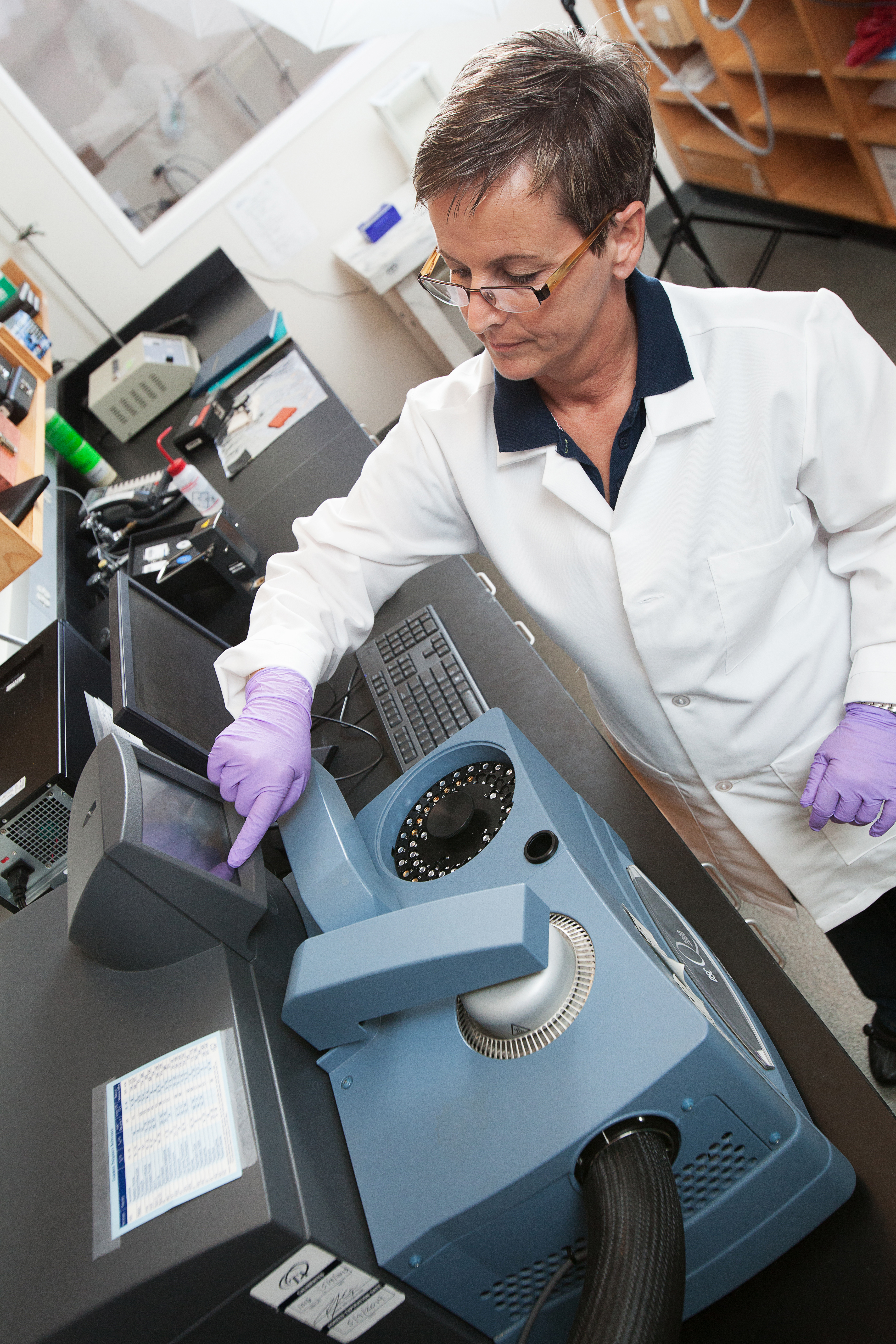DSC Analysis
Differential Scanning Calorimeter (DSC) Testing
Differential scanning calorimetry (DSC) is a versatile technique used for analysis of thermal events (e.g. phase transitions, reactions) and physical properties (e.g. heat capacity, crystallinity, phase miscibility) in materials.
Determination of glass transition temperature, melting point, and crystallinity
For polymer systems, the glass transition temperature (Tg), melting point (Tm), and crystallinity are key characteristics used to assess the suitability of a material for a particular application. The mechanical strength and durability of a polymer, for example, are dependent on where the operating temperature falls relative to the Tg or Tm of the material. These properties are also used as quality control metrics to compare lots of raw material or final product to anticipate potential performance differences under end use conditions.
Relevant standards
ASTM D3418 Transition Temperatures and Enthalpies of Fusion and Crystallization of Polymers by Differential Scanning Calorimetry
ASTM F2004 Transformation Temperature of Nickel-Titanium Alloys by Thermal Analysis
ASTM F2625 Measurement of Enthalpy of Fusion, Percent Crystallinity, and Melting Point of Ultra-High-Molecular Weight Polyethylene by Means of Differential Scanning Calorimetry
Thermal/oxidative stability
DSC can be used to screen materials for thermal and oxidative stability. Controlled environmental conditions (temperature, inert/oxidative atmosphere) are employed to monitor the evolution of degradative reactions in a material. For example, the oxidative induction time (OIT) of a material is determined using DSC by exposing a small quantity of sample (milligram mass) to oxygen at isothermal conditions. The OIT is a qualitative assessment of the degree of stabilization of materials and can be used to evaluate changes to stability with different levels of additives (e.g. antioxidants).
Relevant standards
ASTM D3895 Oxidative-Induction Time of Polyolefins by Differential Scanning Calorimetry
ASTM E2009 Oxidation Onset Temperature of Hydrocarbons by Differential Scanning Calorimetry
Extent of cure/heat of reaction
The heat of reaction in reactive chemicals or thermoset materials, such as epoxy resins, can be measured using DSC. By comparing the residual heat of reaction in a “cured” thermoset system with that of the fully un-reacted material, the fraction of unreacted material can be determined. The degree of cure (or extent of cure) is a useful metric for evaluating various curing conditions during optimization of the manufacturing process. Confirming that thermoset systems are cured consistently, uniformly, and completely is key to ensuring the stability of a material in use.
Relevant standards
ASTM E2160 Heat of Reaction of Thermally Reactive Materials by Differential Scanning Calorimetry
Heat capacity/thermal conductivity
Characterization of the heat capacity and thermal conductivity of new materials or composite systems is important for understanding the thermal performance of a material. Heat capacity characterizes the amount of energy required to heat a material by a given temperature increment, while thermal conductivity is a measure of the rate of heat transfer through a material. DSC can be used to determine the heat capacity/thermal conductivity of a material as a function of temperature.
Relevant standards
ASTM E1269 Determining Specific Heat Capacity by Differential Scanning Calorimetry
ASTM E1530 Evaluating the Resistance to Thermal Transmission by the Guarded Heat Flow Meter Technique (non-DSC method)
ASTM E1952 Thermal Conductivity and Thermal Diffusivity by Modulated Temperature Differential Scanning Calorimetry
Phase miscibility
DSC can be used to study the miscibility of multi-component systems, such as polymer blends or drug-polymer dispersions. Miscible polymer blends have a single glass transition temperature that is shifted relative to the native polymers’ glass transition temperatures. The shift in the glass transition is related to the composition (relative ratio) of the components. Identifying a single transition, or multiple glass transitions in the case of immiscible to incompletely miscible systems, as well as evaluating potential changes to crystallinity, informs on the structure and performance of the blend.
